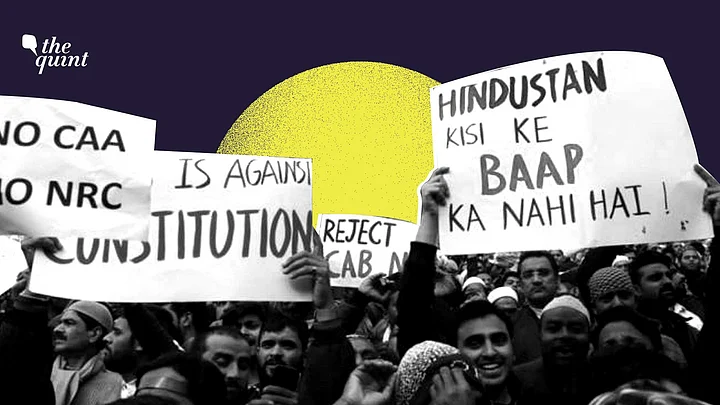The central government has claimed that the Citizenship Amendment Act (CAA), which was enacted in 2019 but is yet to be implemented, is "compassionate and ameliorative" and does not deprive any Indian of their citizenship.
While the notification of rules for the legislation is yet to be issued, the enactment of the law had triggered massive countrywide protests, leading to over 100 deaths.
While the protesters claimed that the law violated the Constitution as it aimed to grant Indian citizenship on the basis of religion, while excluding Muslims, the Ministry of Home Affairs (MHA) has said in its latest annual report for 2020-21:
"The CAA is a limited and narrowly tailored legislation which seeks to provide a relaxation to aforesaid specific communities from the specified countries with a clear cut-off date. It is a compassionate and ameliorative legislation."
The MHA, according to news agency PTI, added, "The CAA does not apply to Indian citizens. Therefore, it does not in any way take away or abridge the rights of any Indian citizen. Further, the present legal process of acquiring Indian citizenship by any foreigner of any category as provided in the Citizenship Act-1955 is very much operational and the CAA does not amend or alter this legal position in any manner whatsoever. Hence, legal migrants of any religion from any country will continue to get Indian citizenship once they fulfil the eligibility conditions already provided in the law for registration or naturalisation."
Claiming that the law does not apply to Indian citizens and does not take away Indian citizenship, the ministry has added that the present legal process of acquiring Indian citizenship by any foreigner of any category as provided in the Citizenship Act, 1955 is very much operational.
The report thus adds that legal migrants of any religion from any country will continue to get Indian citizenship once they fulfil the eligibility conditions provided in the law for registration or naturalisation.
Meanwhile, the Constitution has provided special provisions under the Sixth Schedule to grant protection to the tribal and indigenous people of the northeastern region.
The reported further noted that CAA has excluded the areas under the Sixth Schedule of the Constitution and the areas covered by the Inner Line Permit system under the Bengal Eastern Frontier Regulation, 1873, PTI reported.
Background
India saw widespread protests across the country in late 2019 and early 2020 over the passage of the Act, which amends the definition of illegal immigrant for Hindu, Sikh, Parsi, Buddhist, and Christian immigrants from Pakistan, Afghanistan, and Bangladesh, who have lived in India without documentation.
The act grants fast-track Indian citizenship in six years instead of the earlier required criteria of 12 years for naturalisation.
